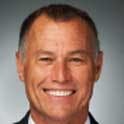The unavoidable truth about problems in your dental practice
No matter who you are, what your career is, or what life situation you’re in, you will encounter problems daily. Many people think – If I could just win the lottery, all my worries would fade away. If I could just retire tomorrow, my troubles would be over. If I could make that one big change in my life, everything would be perfect. Inevitably, most find that a perfect life doesn’t exist. We all want to continually advance ourselves and increase our success – why wouldn’t we? Success positively impacts our lives. But to think success is a permanent solution to all of life’s difficulties is simply not true.
Problems will always exist. As you find solutions one day, a whole new set of problems will await you the next day. In his courses at the Bell Leadership Institute, Dr. Gerald Bell discusses a concept called the “100 Problems a Day Theory.” According to Dr. Bell, from birth to death, each one of us will experience 100 problems each day, some small, some more severe. The trick is to learn not to avoid this truth. Instead of focusing on escaping problems, embrace the chaos and handle it the right way.
At Heartland Dental Care, we strive to implement many of Dr. Bell’s teachings to our affiliated doctors and team members, including how to appropriately manage everyday issues. When a problem occurs, Dr. Bell suggests a simple four-step process to overcome it. First, study the problem.
Determine why this problem occurred, what it’s affecting, what events led to it, and what could have been done to avoid it. Using that information, create a solution that resolves all areas affected. Once the solution is ready, put the plan into action. Afterwards, study the results of the plan. Was it effective? What worked and what didn’t? If this problem should happen again, knowing what steps to take and what not to take will be extremely helpful.
Dr. Bell also discusses the healthiest and unhealthiest ways to react to problems. As dilemmas take place, the mental attitude one possesses plays a big role in the success of resolving them. The five healthiest responses include:
• Always expect problems, don’t be surprised – As stated above, problems will happen. It’s not a question of if, but when. Remaining constantly in a frame of mind to deal with whatever problems arise and planning accordingly will prevent being blindsided when they occur. Be proactive, not reactive.
• Greet problems with interest — Perceiving problems not as setbacks, but as interesting challenges will go a long way in responding effectively. Getting angry, scared, or frustrated will do nothing to help a situation.
• Maintain a positive attitude – As with anything, staying positive will have better results than being negative. With many problems, it’s easy to immediately become discouraged, blame others, and give up, especially with complex issues. But it is essential to believe that every problem, no matter how big, has a solution.
• Keep track of your “batting average” – Keep track of what problems are solved, the method of solving them, and what the results were. According to Dr. Bell, 75 to 80 of the 100 problems you encounter each day should be solved. Ignoring problems or not fully understanding their causes will only result in repetition of those problems.
• For each of your problems, learn three skills to solve them – This again deals with being prepared. For each problem solved, keep three takeaways to use with future issues. Those who spend their time avoiding problems will not be prepared when the problems inevitably happen.
All things considered, it all depends on outlook – you can either let problems overwhelm your life and hold you back, or you can use problems as opportunities to propel forward. When I first started Heartland Dental Care, I identified issues doctors were facing each day that hindered their level of patient care. I saw this as an opportunity to support them, ease their management burdens, and help advance their skills.
Because a plan of action was set into place, HDC now supports hundreds of affiliated dentists across the country in enhancing their level of care. Have we permanently solved every issue doctors face? No. Many problems still exist and new ones arise each day. But each one is yet another opportunity to positively impact the dental industry.
ALSO BY DR. RICK WORKMAN:
The why factor
Discovering the benchmark
It's Not What You Say…
Rick Workman, DMD, is founder and chief executive officer of Heartland Dental Care. After practicing full-time, Dr. Workman created Heartland Dental Care, a world class dental support organization offering affiliated dentists nonclinical, administrative support. HDC has over 440 affiliated dental offices in 26 states. Dr. Workman may be reached at [email protected].








